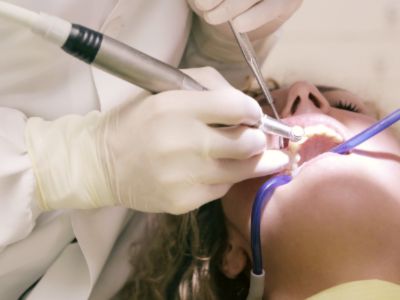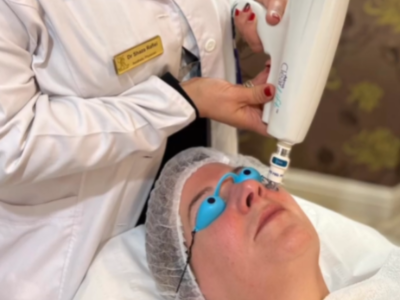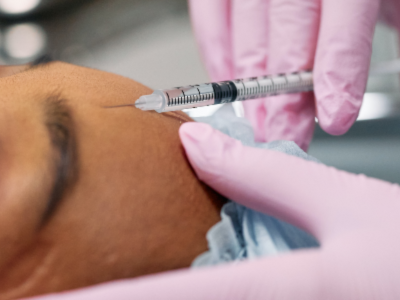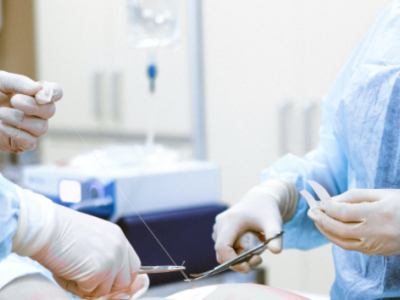Root Canal Treatment in Southend-on-Sea & Rayleigh, Essex at JR Medical

What is Root Canal Treatment?
On occasion, bacteria infiltrate the inner pulp of a tooth, leading to an infection. In such instances, a dental procedure known as root canal treatment, or endodontic therapy becomes imperative to preserve the tooth. Root canal treatment is employed to address infections located at the core of a tooth.
This treatment is generally not a painful treatment and has the potential to rescue a tooth that might otherwise necessitate complete removal. We will perform a root canal while you’re under local anaesthesia.
When is Root Canal Treatment Needed?
Root canal treatment becomes essential when oral bacteria infiltrate the inner pulp of a tooth. This occurrence is often a consequence of untreated cavities over an extended period. The infection within the tooth's core, or the root canal, arises from the intrusion of mouth-dwelling bacteria. This can transpire following:
- Tooth decay
- Inadequately sealed fillings
- Tooth damage due to trauma, like a fall
The signs of a pulp infection include:
- Discomfort while consuming hot or cold foods and beverages
- Pain when biting or chewing
- Tooth mobility
As the infection advances, these symptoms often subside as the pulp perishes. The tooth may appear to have healed, but the infection has actually disseminated within the root canal system. Subsequently, additional symptoms may emerge, including:
- Reoccurring pain when biting or chewing
- Swelling of the gum near the affected tooth
- Discharge of pus from the affected tooth
- Swelling of the cheek or jaw
- Darkening of the tooth's colour
Seeking dental attention upon developing toothache is crucial. When the tooth's pulp is infected, it cannot heal independently. Ignoring the infected tooth can exacerbate the situation. Moreover, the likelihood of successful root canal treatment diminishes as the infection within the tooth establishes itself.
How should I prepare for root canal treatment?
Before undergoing root canal treatment, your dentist might perform an X-ray on the affected tooth. This enables them to construct a precise image of the root canal and evaluate the degree of damage.
Typically, root canal treatment is conducted under the influence of local anaesthesia that numbs both the infected tooth and the surrounding gum. In some situations where the tooth has ceased to be sensitive, the use of local anaesthesia may not be deemed necessary.
Before commencing your root canal procedure, your dentist can address any queries you may have. To prepare effectively for your root canal treatment, consider these steps:
- Adhere to prescribed medications:
If your appointment is scheduled in the presence of a significant infection, antibiotics or anti-inflammatory medications might be recommended a few days prior. Follow your dentist's instructions diligently.
- Abstain from smoking:
Tobacco products hinder the body's natural healing process. Refrain from smoking several days ahead of your root canal appointment, and ideally, consider quitting altogether if feasible.
- Consume a healthy meal:
Local anaesthesia used during root canal therapy will induce numbness in your mouth for a few hours. It's advisable to have a nutritious meal before your appointment to ensure you're well-nourished during the procedure.
How is a root canal treatment performed?
In order to address the infection within the root canal, the bacteria must be eliminated. This can be achieved through either:
- Removing the bacteria from the root canal system (root canal treatment).
- Extracting the tooth (extraction).
However, opting for tooth extraction is generally not recommended, as preserving as many natural teeth as possible is preferred.
Before undergoing root canal treatment, local anaesthesia is commonly administered. This ensures that the procedure is painless and has no more discomfort than getting a filling.
Following the removal of bacteria, the root canal is filled, and the tooth is sealed using a filling or crown. In most instances, the inflamed tissue surrounding the tooth will heal naturally.
Root canal treatment typically yields successful outcomes. In approximately 9 out of 10 cases, a tooth can remain functional for up to 10 years after undergoing root canal treatment.
Call JR Medical now on 01702 314497
All of our services cover the whole of Southend-on-Sea including Westcliff-on-sea, Leigh-on-Sea, Rochford, Hadleigh, and Benfleet. We also cover a wider area of Essex, including Rayleigh, Basildon, Grays, and Thurrock.














